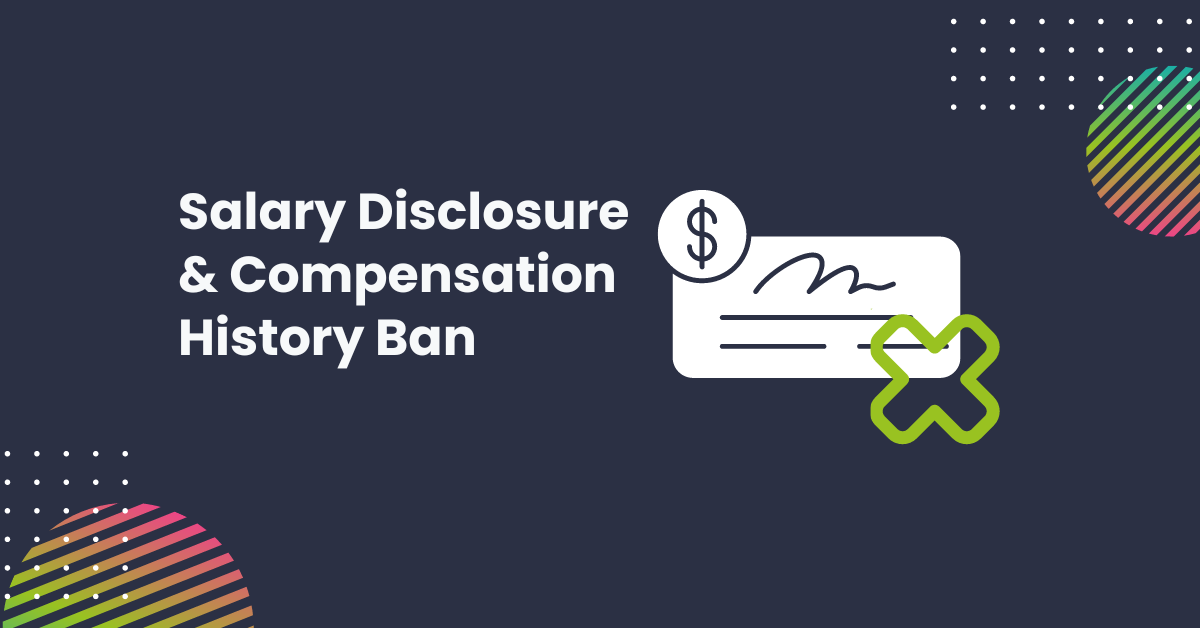2 min read
Proposed Federal Rule: Salary Disclosure and Compensation History Ban
 Debra Milstein Gardner
:
Feb 15, 2024 1:36:39 PM
Debra Milstein Gardner
:
Feb 15, 2024 1:36:39 PM

President Biden's Executive Order 14069, issued on March 15, 2022, directed the Federal Acquisition Regulatory Council (FAR) to explore limiting or prohibiting Federal contractors from considering job applicants' or employees' past compensation when making hiring decisions. To this end, on December 4, 2023, the FAR submitted a proposal titled "Pay Equity and Transparency in Federal Contracting" to the Office of Management and Budget (OMB) for approval. The proposal was approved by OMB on January 29, 2024, and the FAR released the Notice of Proposed Rulemaking (NPRM), which was published in the Federal Register on January 30, 2024.
If the Proposed Rule is finalized in its current form, it would mandate that federal contractors and subcontractors, regardless of contract size or tier, disclose anticipated salary ranges in job postings for specific positions. Additionally, contractors would be barred from soliciting or considering job applicants' compensation histories when hiring individuals employed on or associated with a government contract.
Other Key Points
- The salary disclosure requirement encompasses a range of compensation details, including the wages, benefits, and bonuses that the contractor expects to pay for the advertised position, the range for those currently working in similar jobs, or the budgeted amount for the position related to work on or in connection with a government contract.
- Contractors are required to inform applicants about the prohibition on inquiring about salary history and provide disclosures regarding salary and benefits either within the job announcement or as part of the application process.
- Employers must provide applications and employees with written notice of their rights under the FAR provision and establish a mechanism for filing complaints of noncompliance or discrimination.
- Complaints for noncompliance or discrimination can be filed within 180 days of the alleged adverse action with the applicable contracting agency or the Office of Federal Contract Compliance (OFCCP). OFCCP would be responsible for handling all complaints
Stakeholders are invited to provide feedback on the Proposed Rule (FAR Case 2023-021) until April 1, 2024. The FAR Council seeks input on several key aspects, such as determining which contractors and contracts should be subject to the rule, defining the parameters of pay transparency obligations, refining the language for notices of rights, improving the complaint process, and assessing any additional costs or benefits associated with compliance.

This proposed federal rule follows a trend we are already seeing in various states and municipal or local laws related to pay transparency and salary history restrictions. While the proposed federal requirements are not the strictest or broadest compared to some state laws, they would introduce additional compliance obligations for federal contractors and subcontractors.
While it remains uncertain if the OFCCP will include a review of the new requirement in its compliance evaluations, the agency has expressed concerns about using prior salary to determine pay. Recently released FAQs on compensation history underscore this concern, suggesting that while not explicitly prohibited by federal law, relying on salary history could contribute to unlawful discrimination, depending on specific circumstances. It's important to note that OFCCP FAQs are not legally binding but indicate an area of focus for the Department of Labor under the Biden Administration.
Federal contractors may want to start evaluating their potential coverage under the finalized rule by identifying positions involving work performed "on or in connection with" a federal contract.
Debra Milstein Gardner has worked in the Equal Employment Opportunity (EEO) and Affirmative Action (AA) space for the past 43 years while working in the public and private sectors in various human resources compliance roles. She began her career working for the Equal Employment Opportunity Commission and then went to the Marriott Corporation for nine years working in EEO, Affirmative Action and field human resource roles. In 1990, Debra founded Workplace Dynamics LLC providing EEO, AA, and DEI consulting services to government contractors. In 2016, Debra sold the affirmative action portion of Workplace Dynamics to OutSolve LLC and works part-time as a Market Analyst. Debra is a sports fanatic, routing for the Baltimore Ravens and all Virginia Tech Hokie teams. She loves to hike and boat in her mountain and lake community of Lake Lure, NC.
Recent Posts

Salaries are No Longer Secret – The Pay Transparency Revolution
Related Posts

What Triggers an I-9 Audit? Key Factors You Should Know
Verifying proper identity and work authorization documentation for every employee is a crucial HR compliance function - not just for a company’s...

Part 2: Actions Federal Contractors and Grantees Should Take Now to Certify Their Federal Contracts & Grants
OutSolve has invited John C. Fox, Esq. as a guest blogger providing legal insights on EEO and compliance issues. The views expressed in his posts are...

How to Conduct Compliant and Non-Discriminatory Interviews
Interviewing applicants is a crucial part of the hiring process. To ensure your organization is staffed with top performers, you must begin by...

